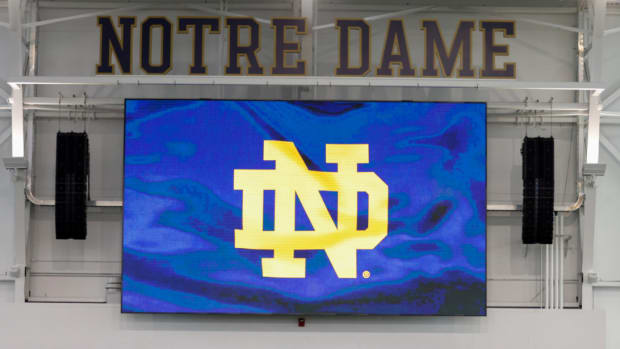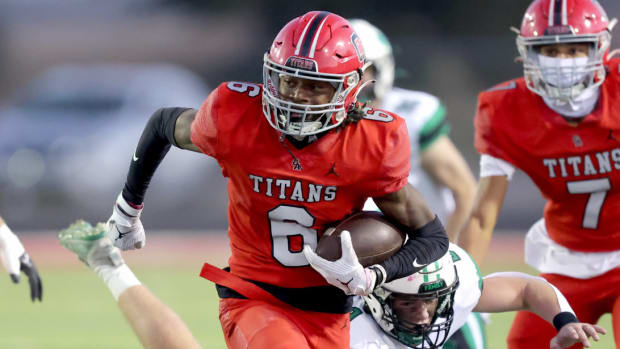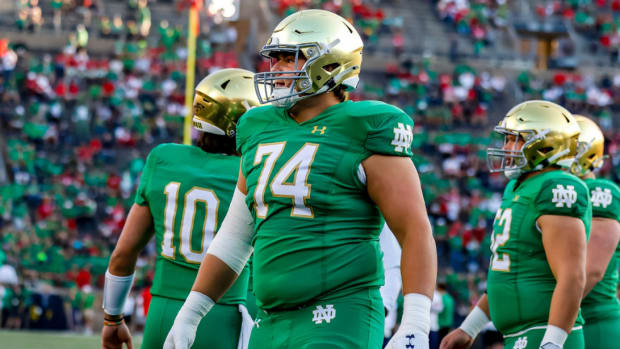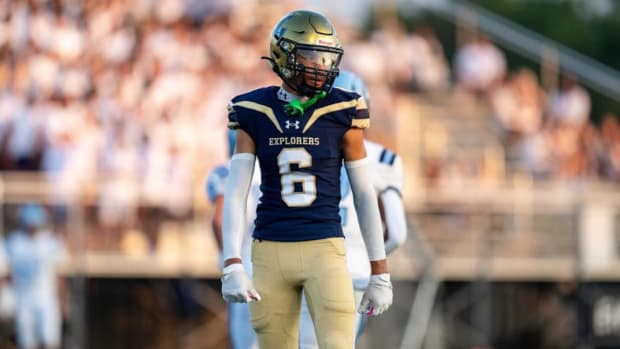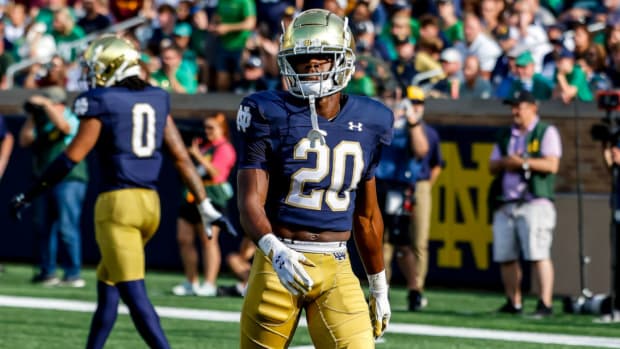It Is Time For College Football To Fix The Targeting Penalty
It is way, way past time to fix the targeting rule in college football. A rule that has good intentions, the targeting rule is simply misapplied far, far too often. The severity of the rule, and the lack of nuance with the penalty has too great of an impact on games, beyond what it should when you consider how often the rule and penalty gets misused.
The fact is no matter how much you create written guidelines for officials and the review crew, it still becomes a subjective decision, which means there will be errors. Anyone that watches college football with any regularity sees how frequently this rule gets misapplied, and how targeting in one game isn’t in another, and vice versa.
If an official makes a mistake on a holding call it’s just a 10-yard penalty. The player who held - or didn’t hold - isn’t ejected. When an official, or the review committee, makes a mistake on a targeting call the player flagged is ejected. There are far too many bad targeting calls being made, and it’s having far too much of an impact on games.
This was called targeting and the player was ejected. It shouldn't have been called targeting, but it was, and then it was upheld. Two mistakes, and then the player is ejected.
Simply put, the way that targeted is penalized needs to change.
1) Make targeting similar to unsportsmanlike conduct — There is a way to still make the penalty sting while limiting how impactful a missed call can be, and that is to make it like an unsportsmanlike penalty. The first time a player is flagged for targeting he gets a 15-yard penalty. The second time a player gets called for targeting he is ejected.
If you want to make it string even more then have it where a player that gets called for a second targeting penalty in a game not only gets ejected in that game, but he also gets suspended for the following game.
2) Review each targeting, but don’t stop the game — We constantly hear people whine about how long games take. One way to cut off a few minutes is to get rid of the targeting reviews in that moment. If a targeting happens then make the call, mark off the penalty and move onto the next play. There is no need for a review on a player’s first targeting.
Now, the issue is if targeting is misapplied then it could mean a player gets booted for a second targeting. What CFB could do to eliminate some of the reviews is to have the review crew look at the play between plays. They could even have a targeting specialist who focuses on targeting calls.
If the review crew judges it’s not a targeting then they can inform the referee between series or plays, and the targeting gets removed from the player’s ledger. It doesn’t change the penalty, but it means the player would still need to get flagged twice for actual targeting to be ejected.
This way, if an official makes a mistake all that is impacted is the yards gained or lost from the penalty, but at least a player isn't ejected. We don’t review holding penalties and officials are going to make mistakes. I can live with officials making mistakes on a personal foul as long as it’s just that penalty and also not one that forces a player out of the game.
3) Keep an immediate ejection on the table for flagrant targeting calls — There are instances where targeting requires an immediate rejection, and we all know what it looks like. In instances where it’s clearly a dirty play then the officials should have the option of booting a player.
I was going to use the ferocious hit that a Virginia Tech player put on DeShone Kizer back in 2016, but then I remembered it wasn’t actually called targeting. Remember the no-call against Torii Hunter Jr. back in 2016? Or the bad call against Stephon Tuitt in 2014, that one could argue cost the Irish that game?
I could go on and on.
But here is an example of a hit that could and should result in an immediate ejection:
A play like this should not be treated the same way that Kyle Hamilton’s hit against North Carolina was treated. One should result in an ejection, the other should not.
I am sympathetic to the desire of those running college football to offer more protection for players, and to limit hits to the head. There is a way to do this the right way, and a way to do it the wrong way. The current targeting rule is the wrong way, and it needs to change.
To comment below be sure to sign up for a FREE Disqus account, which you can get HERE.
———————
Become a premium Irish Breakdown member, which grants you access to all of our premium content, our premium message board and gets you a FREE subscription to Sports Illustrated! Click on the link below for more
Be sure to stay locked into Irish Breakdown all the time!
Join the Irish Breakdown community!
Subscribe to the Irish Breakdown podcast on iTunes.
Subscribe to the Irish Breakdown YouTube channel.
Follow me on Twitter: @CoachD178
Follow me on Parler: @BryanDriskell
Like and follow Irish Breakdown on Facebook
